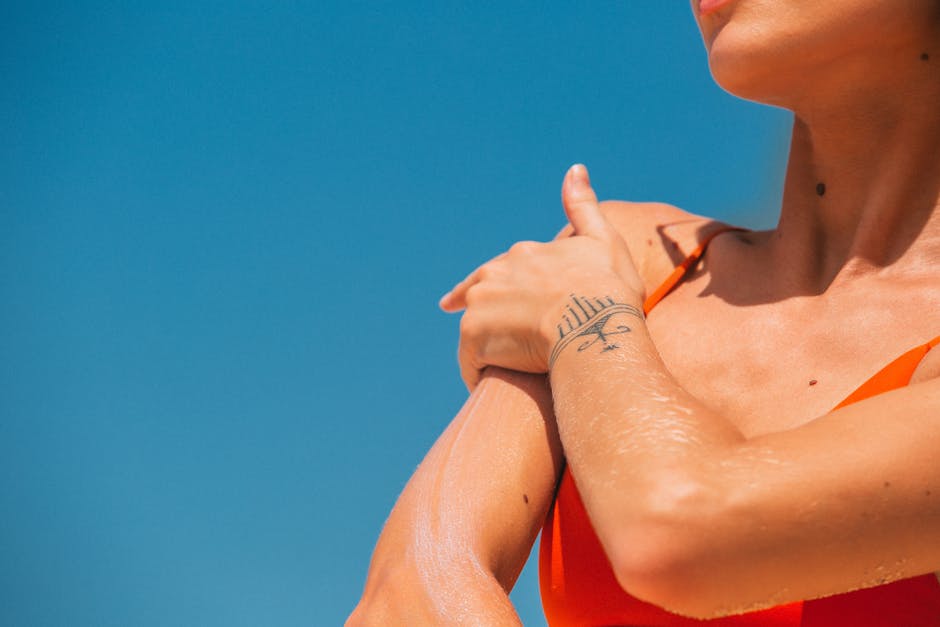
Think SPF 15 Works? Here’s the Science That Says Otherwise
Many people believe that SPF 15 or 30 is good enough, especially on cloudy days or quick errands. But science says otherwise. If you’ve ever wondered, “Is 50 sunscreen better than 30?”—this article breaks it down with facts, comparisons, and the skin-saving tips you need to know now.
Is 50 Sunscreen Better Than 30?
Yes, SPF 50 sunscreen is better than SPF 30 for prolonged and intense sun exposure. SPF 30 blocks about 97% of UVB rays, while SPF 50 blocks around 98%. That 1% difference may seem small, but over time, it significantly reduces your risk of sunburn, aging, and skin cancer—especially if you're outdoors often.
- SPF 30: Blocks 97% of UVB rays
- SPF 50: Blocks 98% of UVB rays
- Duration: Both last around 2 hours before reapplication is needed
- Best for: SPF 50 is ideal for outdoor work, vacations, or sun-prone skin
Why SPF 15 Isn't Enough
SPF 15 only blocks about 93% of UVB rays. While it may sound effective, this still allows a significant amount of radiation to reach your skin. Over time, this contributes to cumulative damage, increased pigmentation, fine lines, and a heightened risk of skin cancer.
| SPF Rating | UVB Blocked | Recommended For |
|---|---|---|
| SPF 15 | 93% | Minimal exposure (less than 15 minutes) |
| SPF 30 | 97% | Daily errands, office days |
| SPF 50 | 98% | Outdoor activities, summer days |
Common Myths About Sunscreen Strength
Are you still skipping SPF 50 because you think SPF 30 is “close enough”? Here are the biggest sunscreen myths you need to ditch:
- Myth 1: Higher SPF lasts longer — False. All sunscreens need reapplication every 2 hours.
- Myth 2: SPF 100 is double the strength of SPF 50 — False. SPF protection doesn't scale linearly.
- Myth 3: Dark skin doesn’t need SPF 50 — False. UV damage affects all skin tones.
- Myth 4: Makeup with SPF is enough — False. You'd need 7x the amount of foundation for full coverage.
Top Sun Protection Tips for Summer
Protecting your skin during summer requires more than just a swipe of sunscreen. Here's how to level up your sun protection routine:
- Use a broad-spectrum SPF 50+ daily, even on cloudy days.
- Reapply every 2 hours and immediately after swimming or sweating.
- Wear protective clothing, wide-brimmed hats, and sunglasses.
- Seek shade during peak sun hours (10 AM – 4 PM).
- Don't forget hidden spots: ears, lips, scalp, feet, and behind the knees.

Choosing the Best Sunscreen for Protection from Sun
To get the best sunscreen protection, you need to choose a formula that fits your lifestyle, skin type, and environment. Not all sunscreens are created equal.
- Mineral Sunscreens: Ideal for sensitive skin; use zinc oxide or titanium dioxide
- Chemical Sunscreens: Lightweight and invisible; best for daily use
- Water-Resistant: Great for outdoor sports, swimming, and humid climates
- SPF 50+ Tinted Sunscreens: Add light coverage while protecting skin

Sunscreen Application Mistakes to Avoid
Even the best sunscreen won’t help if it’s not applied correctly. Here are the top mistakes to watch for:
- Applying too little: Most people only use 25–50% of the recommended amount
- Skipping cloudy days: UV rays penetrate clouds and windows
- Not reapplying: Protection fades after 2 hours or sooner with water/sweat
- Missing key areas: Neck, ears, scalp, and tops of feet are commonly ignored

FAQs
Is SPF 50 better than SPF 30 for daily use?
Yes, SPF 50 offers slightly higher UVB protection, which is helpful for daily exposure—especially if you live in a sunny region or have fair skin prone to damage.
Can I rely on SPF in my makeup?
Not entirely. You'd need to apply a much thicker layer of makeup to achieve the labeled SPF. Always use a dedicated sunscreen underneath makeup.
How often should I reapply SPF 50?
Every two hours, or immediately after sweating or swimming—even if it’s labeled water-resistant.
What’s the best sunscreen for protection from the sun?
Look for broad-spectrum, SPF 50+, water-resistant sunscreens with ingredients suited to your skin type. Mineral options are best for sensitive skin.
Is higher SPF always better?
Not necessarily. SPF 50 blocks 98% of UVB, while SPF 100 blocks 99%. The gain is minimal, so focus on reapplication and proper coverage instead.
Pillar Article: Sunscreen Protection Levels: Are You Using Enough?
Other Related Articles:
- Stop Overlooking This SPF Rule Before You Regret It
- SPF 50 vs 30: The Mistake That’s Costing You Coverage
Explore More:



0 Comments